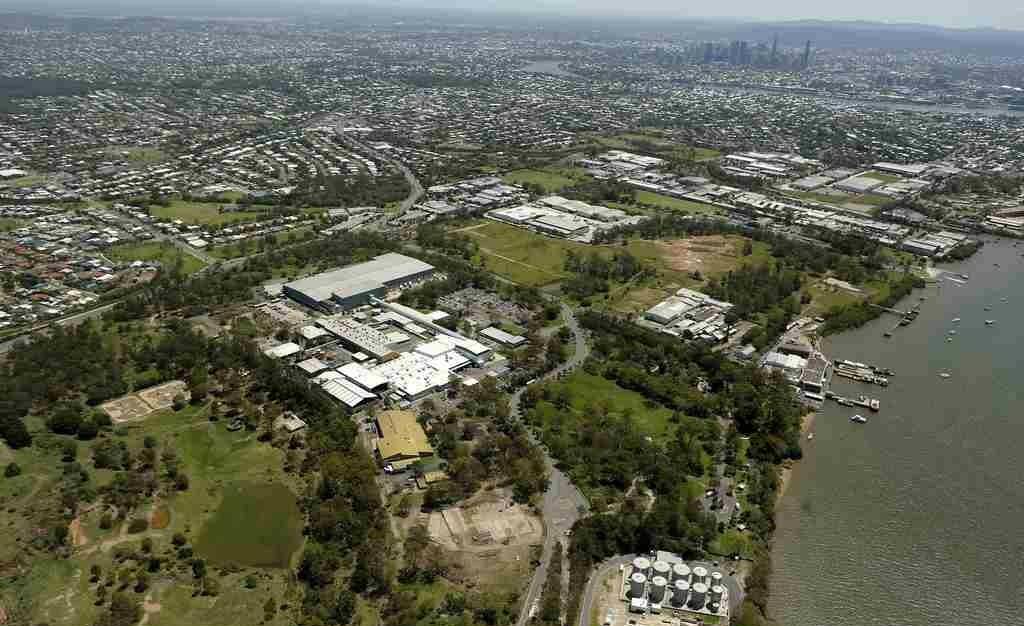
BIG QUEENSLAND cattle and beef business Australian Country Choice intends to fight for its right to continue to run its processing plant at Cannon Hill in Brisbane as retail developers attempt to muscle in on high-value waterfront city real estate.
It has in its corner the meatworkers union, which says pushing facilities like this out would have devastating consequences for hundreds of third and fourth generation workers and sets a dangerous precedent for agricultural manufacturing around the country.
The Cannon Hill abattoir employs more than 1000 people and is one of the only beef processing facilities in the world able to slaughter, bone, value-add, retail-ready package and distribute under one roof in an unbroken cold chain.
It has a daily capacity of 1400 head of beef cattle, or approximately 90 million carcass kilograms a year, and is situated on a 40-hectare site located near the seaport, airport and national highway.
BMI Group are developing what they have labelled the Rivermakers Precinct right alongside the plant, marketed as a 'lifestyle precinct on historic riverfront'. It includes a gym, restaurant and a McDonald's fast food outlet.
ACC has launched a legal appeal against Brisbane City Council's granting of approval for two businesses in a part of the precinct zoned as light industrial, arguing the cafe-style retail nature of the businesses don't fit the bill for that zoning.
The Queensland government has now stepped in, slapping a temporary planning injunction on the development.
ALSO IN BEEF:
ACC has operated the plant for 23 years, after purchasing it from the state government.
Chief executive Anthony Lee said 'millions and millions of dollars' had been spent ensuring it was fit-for-purpose.
"We have invested heavily on the back of being located in an industrial precinct with a sufficient industrial buffer around us," he said.
"The BMI site is zoned industrial and all we are asking is for the integrity of that to be upheld.
"We think we can be there forever if we have the right businesses around us - that is, other manufacturing businesses.
"We genuinely believe we have a long-term future at Cannon Hill and we want to be there. It is the right location - ideal for sea and air transport, close to major arterials and to a workforce."
As much as 92 per cent of the plant's workforce live in the local area, Mr Lee said.
ACC employs hundreds more on farms across Queensland, whose livelihood is reliant on the viability of the abattoir.
Australasian Meat Industry Employees Union Queensland branch secretary Matt Journeaux said meat processing had occurred at the Cannon Hill site since 1913, maintaining an employment hub for meatworkers for generations.
He called on the state government to step in to ensure future development abides by original land use.
Eateries, restaurants and 'lifestyle' shops were 'totally inappropriate' and their establishment in close vicinity to a meatworks 'would not end well,' he said.
"This is crucial employment to this area, which our state government should seek to protect," Mr Journeaux said.
Urban encroachment forcing livestock processing facilities to move on are not new - the most notable being the NSW government-owned Homebush abattoir, once the largest beef processing facility in the southern hemisphere, being closed to make room for Sydney Olympic Park in the lead-up to the 2000 games.
However, the ACC story is rather unique.
As Steve Martyn's 2015 book World on Plate - A History of Meat Processing in Australia pointed out, the Homebush abattoir was dated in terms of technology and meat marketing regulations and lacking in investment.
ACC's facility is state-of-the-art and owned by a family firmly committed to its future.
For that reason, many beef industry commentators believe how things play out at Cannon Hill will set a very important precedent for the meat industry, and agriculture more widely.


